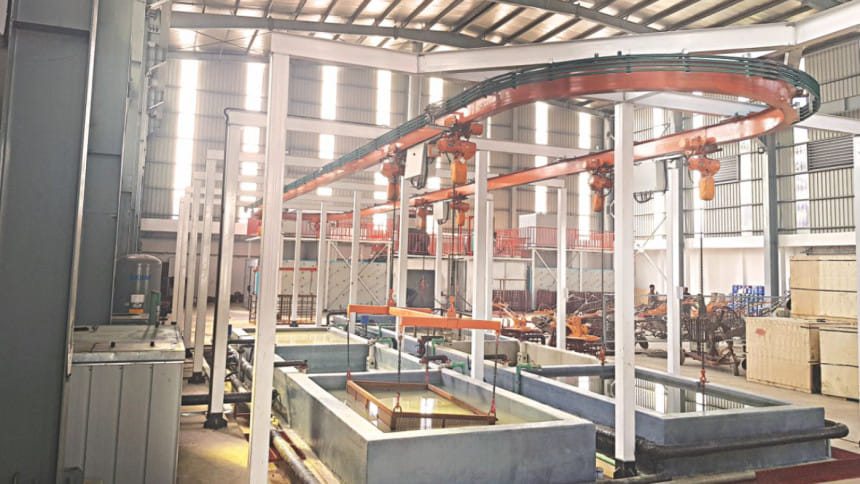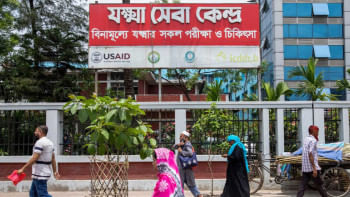Local firm making farm machinery

Alim Industries is expanding facilities to make farm machinery to meet the rising demand from growers in the face of gradual decline in farm workers, said the company.
The move comes after the National Board of Revenue (NBR) offered duty concession on import of certain parts for the first time in fiscal 2016-17 to encourage local manufacturing of power tiller, power thresher, power reaper and power seeder.
The revenue authority said it would charge only 1 percent duty on import of certain machinery parts.
The locally-manufactured agri-machinery would be 15-20 percent cheaper than the imported ones if the government maintains the concessionary rates, said Alimul Ahsan Chowdhury, managing director of Alim Industries.
The company, which is based in the northeastern district of Sylhet, is now awaiting the green light from the agriculture ministry, the permission of which is needed to enjoy the duty benefit.
“We want to start making power reaper and power tiller from December.”
Alim's efforts come at a time when farmers are preparing nearly 90 percent of the farm land by power tillers and tractors and threshing more than 90 percent of their grains by machines.
In addition, a large portion of land is also irrigated by machines -- a transition that has created a huge market for farm machinery and spare parts, and it is growing in the face of rising farm wages amid falling supply of farm labourers, according to stakeholders.
Imported farm machinery meets most of the demand in the absence of adequate domestic manufacturing.
For example, 40,000 new power tillers enter the market every year and 95 percent of the quantity is imported, according to industry insiders.
There is no authentic data regarding market size of agricultural machinery in Bangladesh, Chowdhury said, adding that Alim Industries, the oldest agri-equipment maker in Bangladesh, has been logging in 15-20 percent annual growth.
He urged the Bangladesh Bank for including agricultural machinery in the list of agro-based industries so that the sector can get low-cost loans and keep their production costs low.
He also called for tax breaks to encourage investment by existing and new investors in the sector.
Sheikh Md Nazim Uddin, director of farm mechanisation project under the agriculture ministry, said they visited the plant of Alim Industries and found that the company is developing infrastructure and bringing capital machinery.
“We have submitted our recommendation to the ministry.” The government is also planning to frame a policy on farm mechanisation in order to ensure development of the sector, according to Nazim Uddin.
The existing agricultural policy has given emphasis on mechanisation. “But a separate policy is needed if we want to go for manufacturing and ensure quality of the machinery,” he said, adding that a draft has already been submitted to the agriculture ministry.

 For all latest news, follow The Daily Star's Google News channel.
For all latest news, follow The Daily Star's Google News channel. 



Comments